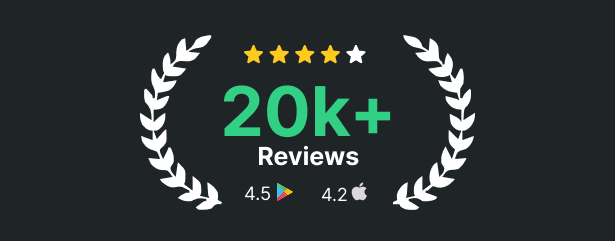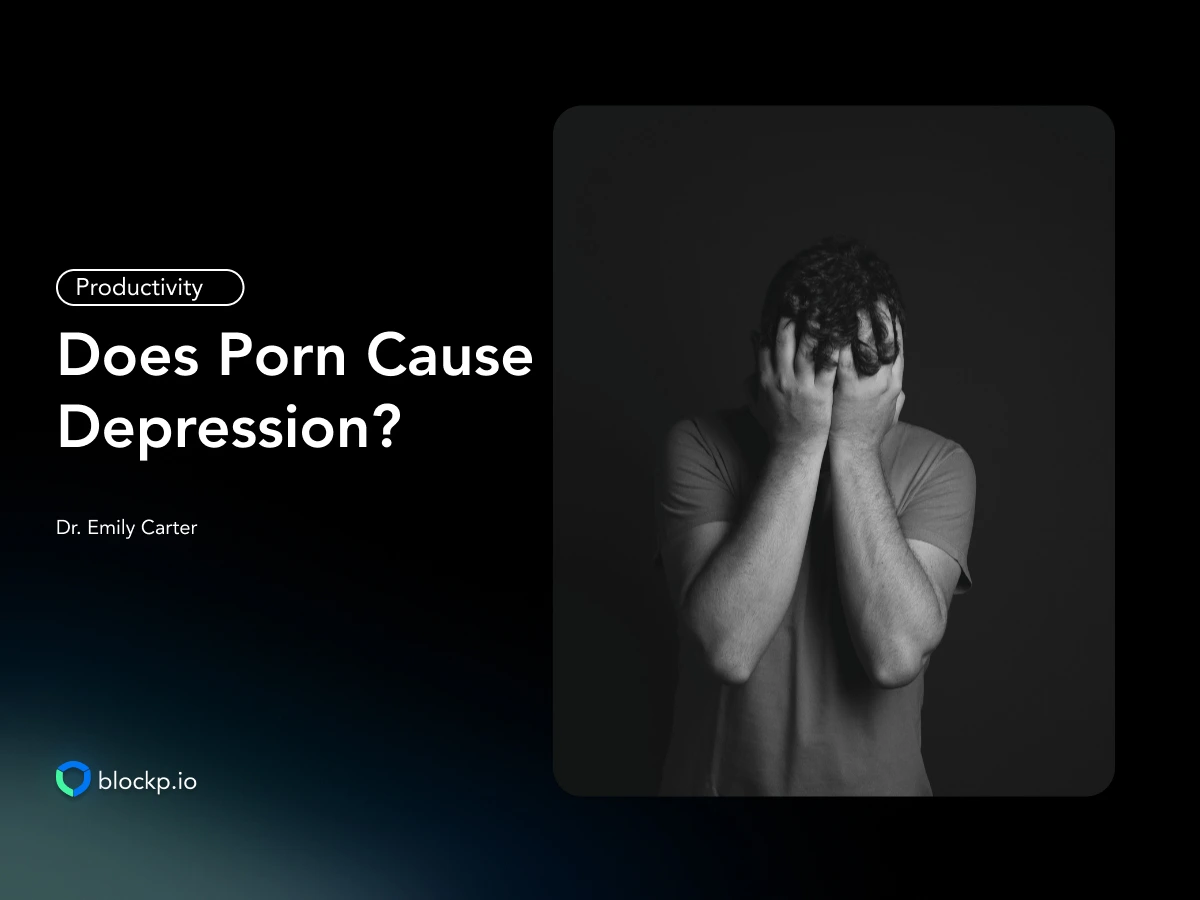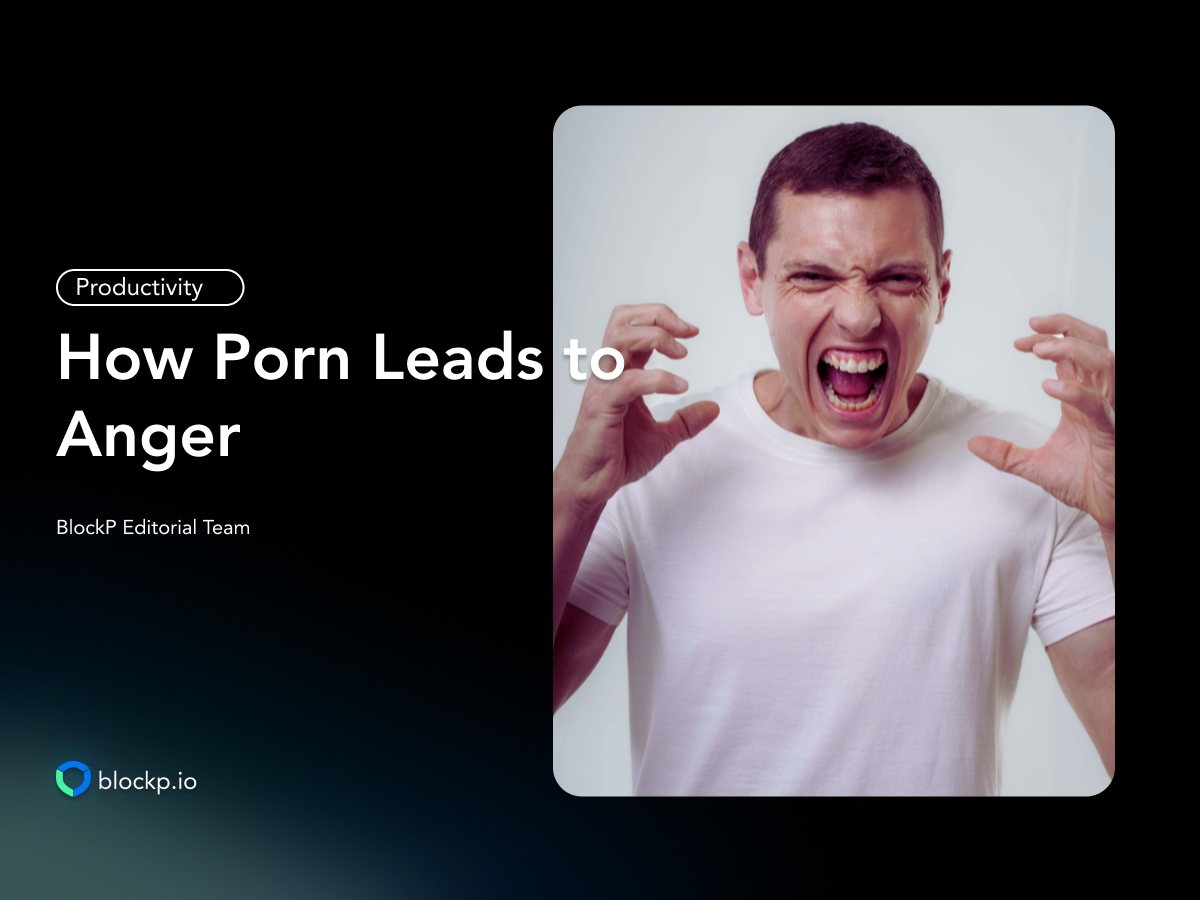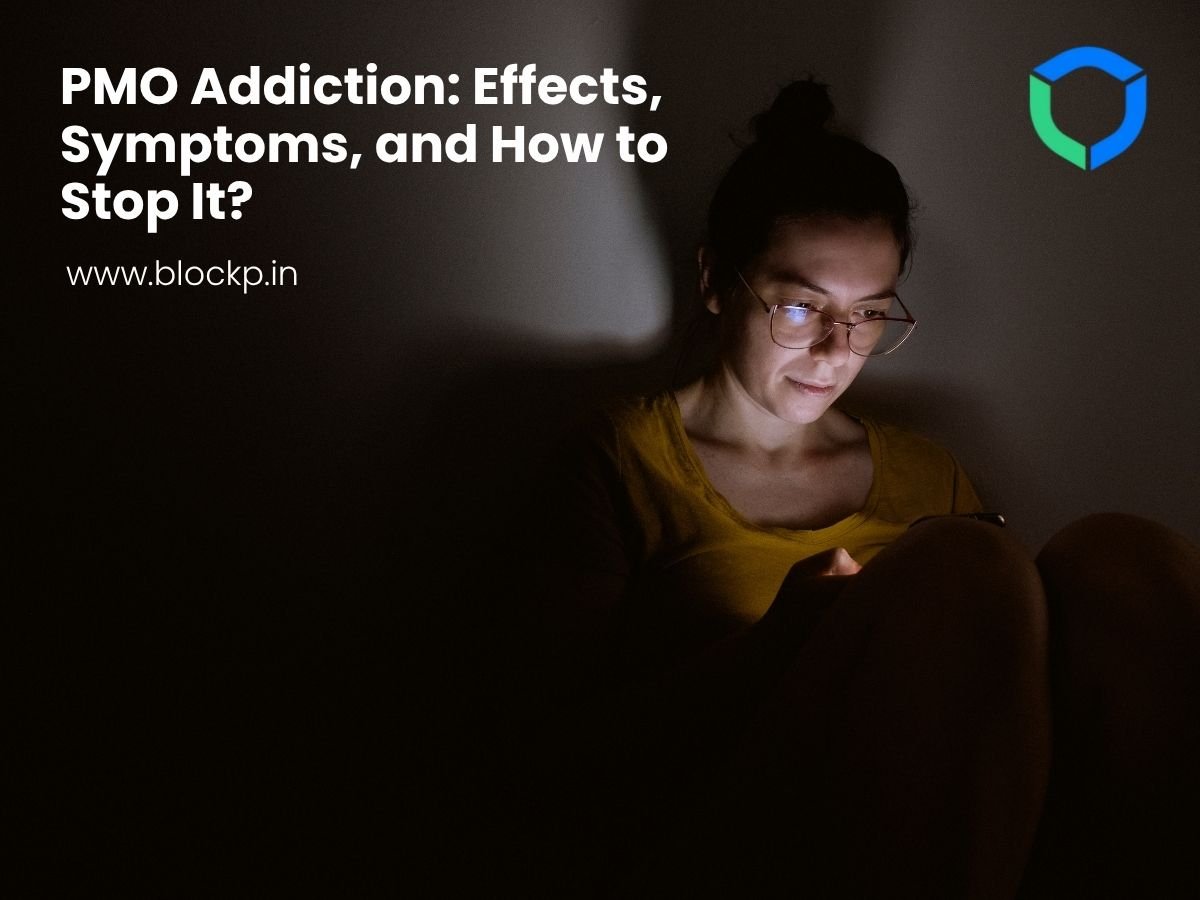We all know porn can cause considerable psychological distress and mental health issues. However, when it comes to questions such as does porn cause depression, there is no simple answer that explains the cause and effect.
There are definitive risk factors and vulnerabilities connected with porn and depression. But depression itself is a multifaceted mental health condition. So, currently, we do not have a definitive causal link between porn and depression.
However, the neurobiological changes of porn and its effects on emotional regulation do make an individual more vulnerable to depressive symptoms.
What Is the Connection Between Porn and Depression – Correlation ≠ Causation
When we try to understand whether porn causes depression, it is important to distinguish between correlation and causation.
Many studies note a significant relationship between pornography nd depression. However, when it comes to establishing a direct link between porn and depression, with porn as a cause of depression, the evidence is limited.
In case of depression, individuals might turn to porn as a coping mechanism and develop compulsive use patterns. Also, in specific contexts, such as people who feel a moral conflict, porn consumption can be a predictive factor in the increase of depressive symptoms.
Can Porn Consumption Cause Depression?
Does porn cause depression? While porn and depression are linked and correlated, porn might not be causing depression directly. However, it can be a powerful contributing factor for depression.
Usually, moderate porn consumption is considered harmless. But, due to certain patterns of consumption and vulnerabilities of individuals, porn can lead to depressive feelings. Here is how pornography might cause depression –
1. Brain Chemistry Changes and Reward System Desensitization
Dopamine is a neurochemical associated with reward and pleasure. Excessive and frequent porn watching results in intense dopamine spikes in the brain. Over time, the brain gets habituated to high levels of dopamine and downregulates or desensitizes the receptors.
Such changes in receptors can lead to mood problems, including depression and anxiety. Frequent porn consumers often report poorer mental health along with greater depressive symptoms.
Repetitive exposure to intense stimulation of porn can dampen the response to less intense natural stimuli. So, sustained porn consumption can make an individual feel a low mood when they are doing normal activities.
2. Negative Self-Image and Unrealistic Comparison
Pornography is notorious for featuring unrealistic performers and fantastical sexual acts, which can lead to the comparison trap. Individuals who watch porn regularly can internalize the imagery and begin to compare themselves or their partner to pornographic standards.
When a person feels self-conscious about their looks, body, or sexual performance, the feeling of inadequacy can result in lower self-esteem. Over time, this negative self-image fosters depressive thoughts.
The dissatisfaction with the partner’s body (in comparison to porn) can also cause stress and depression. The shame and insecurity about their bodies can make the individual’s moods worsen.
3. Compulsive Use and Isolation
Compulsive and secretive porn use causes social withdrawal. Individuals often find themselves getting away from friends and family to watch porn in private. This withdrawal makes the person feel lonely, which is a known factor for depression.
Excessive porn use can also cause emotional distance between partners. The desensitization of porn can make a person disinterested or unable to participate in partnered sex. If a partner feels sexually dissatisfied and emotionally neglected. This lack of intimacy causes stress in relationships.
Over time, social withdrawal and relationship stress can become contributing factors for depression. Studies have also shown that people who watch porn are more likely to feel lonely than people who don’t.
4. Guilt, Shame, and Moral Conflict
When a person’s values conflict with watching porn, their behavior can cause significant psychological distress. More than pornography itself or the nature of its use, the inner moral conflicts of the individual can result in inner turmoil and depression.
An important point to note here is that porn and depression appear to have a strong association only in men who had a moral conflict about porn.
The moral beliefs are usually rooted in spiritual beliefs and religion. So, religiosity is often noted as a strong predictor of the feeling of ‘moral failure’ in the case of porn. This internal conflict is also linked to higher levels of stress, anxiety, and depression.
5. Emotional Escape and Avoidant Coping
For individuals experiencing stress, boredom, or negative emotions, porn can become a coping mechanism – a damaging one. Using porn to numb and manage these feelings not only provides temporary relief but hinders real recovery in the long term.
People often use porn as a crutch to cope with feelings of loneliness or general dissatisfaction with life. Porn can act as a distraction and improve mood temporarily. But soon, its effects wear off, and the negative emotions come back with greater intensity and frequency.
So, problematic and compulsive porn use is often a symptom of dormant mental health issues and emotional challenges. The lack of emotional regulation and the vicious cycle of porn can make a person vulnerable to depression.
6. Culture, Gender, and Age
Demographic factors are a key influencer of porn consumption patterns and their impact on mental health. In cultures and religions where porn is taboo, people are more likely to feel psychological distress about their porn use.
Adolescents are usually exposed to porn between the ages of 9 and 13. Porn consumption rates are also highest among the age group of 18 to 23. The developing brains of these young people are more vulnerable to the addictive qualities of porn and its impact on mental health.
Men often report higher rates of problematic porn use – 10.3% of men vs. 3% of women. So, they are more vulnerable to depression. However, women also have a similar neurological response of shame and guilt to porn. So, they are also not completely safe from the mental health effects of porn.
Can Depression Lead to Porn Addiction? – What the Evidence Does and Doesn’t Show
As we have seen, does porn cause depression? We must also look at how depression and porn addiction are linked. When we examine the research, it does not show a simple one-way causal link between pornography and depression.
At the same time, we have several studies that highlight a correlation. People who watch pornography frequently tend to report higher depressive symptoms, anxiety, and lower life satisfaction.
- Do People Who Are Depressed View More Pornography? What Causes the Connection? – Research has shown that people with depression and anxiety are more likely to watch porn. For people with depressive thoughts, porn can become an escape from negative emotions.
- Porn’s Impact on Depression – If porn is used as a coping mechanism, the resulting guilt and loss of control can worsen the feelings of depression.
- What If You Are Worried About a Porn Addiction? – When an individual has a moral conflict or feels shame about their porn use, the worry can make them feel depressed about their porn use.
- The Role of Pre-existing Conditions – The pre-existing emotional distress and vulnerabilities increase the risk of addiction to pornography and depression.
Signs and Symptoms of Porn Addiction
When we look at who tends to use pornography, the trends indicate that men and younger individuals are more likely to be regular users. Research has shown that 18 to 24-year-olds make up 54% of the frequent porn users.
Is it an Addiction? When Porn Can Be Neutral or Positive?
Technically, porn is not classified as an addiction; it is classified as compulsive sexual behavior and Problematic Porn Use. Generally, watching porn is considered to have positive effects, of stress relief and helping to explore sexuality.
When Does Porn Use Cross Into the Problematic Zone?
When porn causes dysfunction or psychological distress, it is considered to be problematic. Porn addiction is characterized by compulsive use, secrecy, an inability to quit, cravings, and neglect of responsibilities to watch pornography.
Seeking Help – Treatment For Porn Addiction And Depression
When compulsive use of pornography and depression are co-occurring, the clinical implications are complex. So, a combination of nuanced and comprehensive approaches and intervention are necessary for treating addiction to pornography and depression.
- Individual therapy – Cognitive Behaviour Therapy (CBT) is effective for reducing compulsive sexual behaviors and the anxiety or depression associated with porn.
- Group therapy – Peer support groups (online or 12 step programs) for sex and porn addiction can provide community and accountability for recovery.
- Medication along with therapy – Anti-depressants and anti-anxiety medications can help to stabilize the mood effectively when combined with therapy.
- Inpatient Treatment – In severe cases round-the-clock support can help to break the compulsive cycles in a controlled environment.
How can BlockP help?
BlockP is the best free porn blocker trusted by 1 million+ users to keep 3 million+ of pornography sites off their digital devices.
If you are trying to recover from addiction to pornography and depression, BlockP can support you in blocking all explicit content at the Network level. It prevents accidental exposure and minimizes the risks of relapse. Its focus mode restricts distracting Apps and helps you develop healthy digital habits.
The password protection feature of BlockP prevents you from uninstalling the porn blocker or overriding it. Adding an accountability partner helps you stay disciplined. BlockP also supports your recovery with meditation prompts and an online support community.
FAQ on Does Porn Cause Depression?
1. Is porn bad for mental health
Yes. There is a higher reporting of mental health issues, such as anxiety and depression, from those who frequently watch porn.
2. Is there a correlation between porn, depression, and anxiety?
There are strong correlations between pornography use and higher levels of depression and anxiety.
3. Is it normal to watch porn to overcome depression?
No. Using porn to manage depressive symptoms can only provide temporary relief and make the depression worse in the long term.







